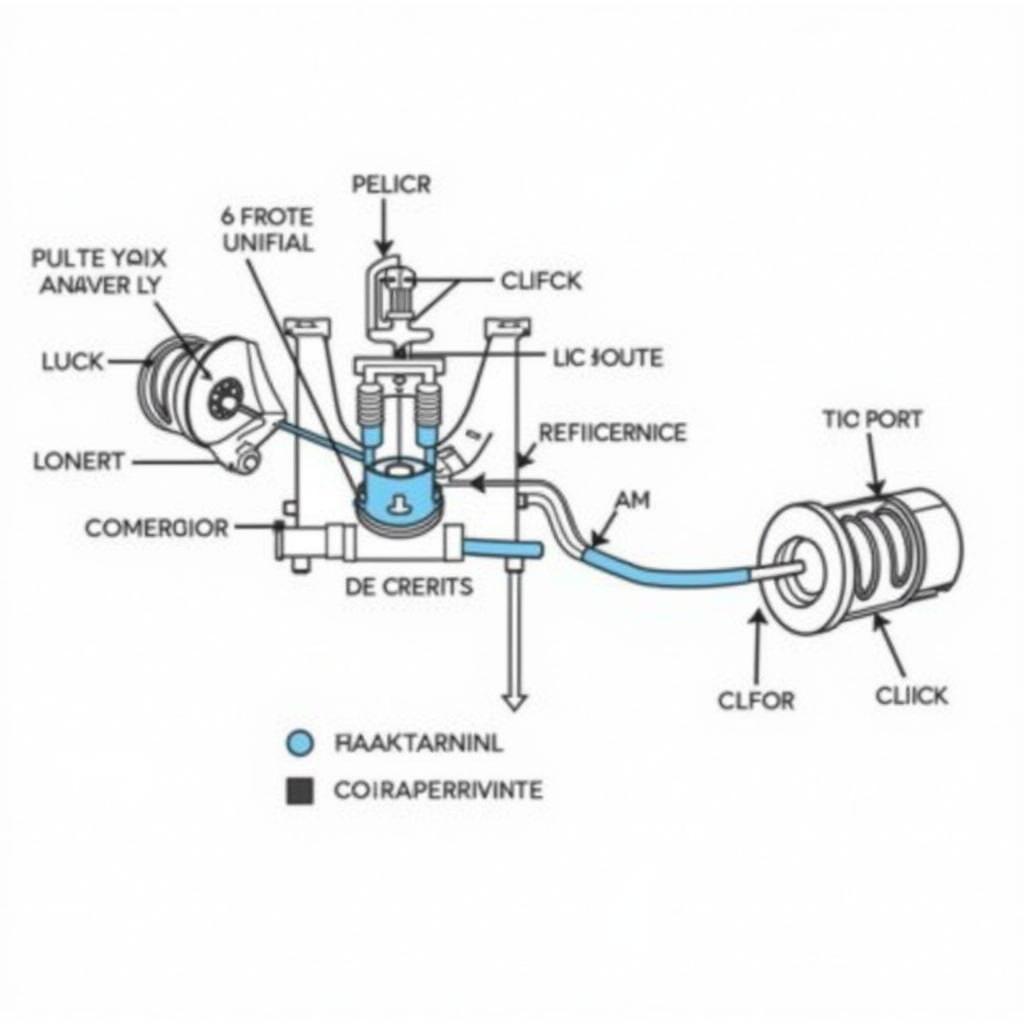Compressor problems can significantly impact your car’s performance and comfort. From affecting your air conditioning to potentially causing engine damage, understanding these issues is crucial for every car owner. This article delves into the various ways compressor problems manifest and how they can affect different aspects of your vehicle.
A malfunctioning compressor can lead to a variety of issues, ranging from a simple lack of cold air to more serious engine problems. Knowing how to identify and address these issues can save you time, money, and frustration down the road. Let’s explore the intricacies of compressor problems and their impact on your vehicle.
Understanding the Role of Your Car’s Compressor
The compressor is the heart of several vital systems in your car, including the air conditioning (A/C) system and, in some cases, the air suspension system. In the A/C system, the compressor circulates refrigerant, allowing it to absorb heat from the cabin and release it outside. In air suspension systems, it pressurizes the air that supports the vehicle.
 Car AC Compressor Diagram
Car AC Compressor Diagram
If your A/C isn’t blowing cold air, a faulty compressor might be the culprit. Similarly, if your car’s suspension feels unusually stiff or bouncy, a compressor problem could be to blame.
Common Compressor Problems and Their Effects
Several issues can plague a car’s compressor, each with varying effects on the vehicle. These problems range from simple leaks and electrical faults to more complex mechanical failures.
-
Refrigerant Leaks: Leaks in the A/C system can cause the compressor to work harder, leading to premature wear and tear. A leak can manifest as warm air from the vents or a hissing sound from under the hood.
-
Electrical Issues: A faulty clutch or wiring can prevent the compressor from engaging, resulting in no cold air. This can often be diagnosed by a clicking sound when the A/C is turned on. If you’ve noticed your car aircon on and off problem, this could be a sign of electrical issues.
-
Mechanical Failure: Internal damage to the compressor can cause it to seize up completely, potentially damaging other components of the engine. This often leads to loud noises and a complete loss of A/C functionality. Serious car belt problems can also lead to mechanical failure.
How Compressor Problems Affect Car Performance
Compressor issues can significantly affect your car’s overall performance and fuel efficiency. A constantly running compressor due to leaks puts extra strain on the engine, reducing fuel economy. A seized compressor can even cause the serpentine belt to break, potentially leading to further engine damage. Don’t ignore even a subtle car problem whistling sound, it might be related to your compressor.
What are the signs of a failing compressor?
Common signs include warm air from the vents, unusual noises from under the hood, and reduced fuel efficiency.
Diagnosing and Fixing Compressor Problems
Diagnosing compressor problems requires specialized tools and expertise. A qualified mechanic can perform pressure tests, leak detection, and electrical diagnostics to identify the root cause of the problem. Depending on the severity of the issue, repairs may range from simple refrigerant refills to complete compressor replacement. Sometimes, a bearing problem on a car can mimic compressor issues. It’s important to get a proper diagnosis.
-
Quote from John Smith, Senior Automotive Technician at Smith Auto Repair: “Ignoring compressor problems can lead to costly repairs down the line. Regular A/C maintenance and prompt attention to any unusual sounds or symptoms can save you a lot of hassle.”
-
Quote from Jane Doe, Lead Mechanic at Doe’s Garage: “A simple refrigerant leak can escalate into a major repair if left unattended. Don’t underestimate the importance of a properly functioning A/C system.”
Conclusion
Compressor problems can have a significant impact on your car, affecting everything from your comfort to your engine’s health. Understanding the signs and symptoms of these problems and addressing them promptly is essential for maintaining your vehicle’s optimal performance. Don’t let compressor problems put a damper on your driving experience. If you’re worried about how serious belt problems car, it’s best to consult a professional.
Contact us at AutoTipPro at +1 (641) 206-8880 or visit our office at 500 N St Mary’s St, San Antonio, TX 78205, United States, for expert advice and assistance with your car’s compressor.





Leave a Reply